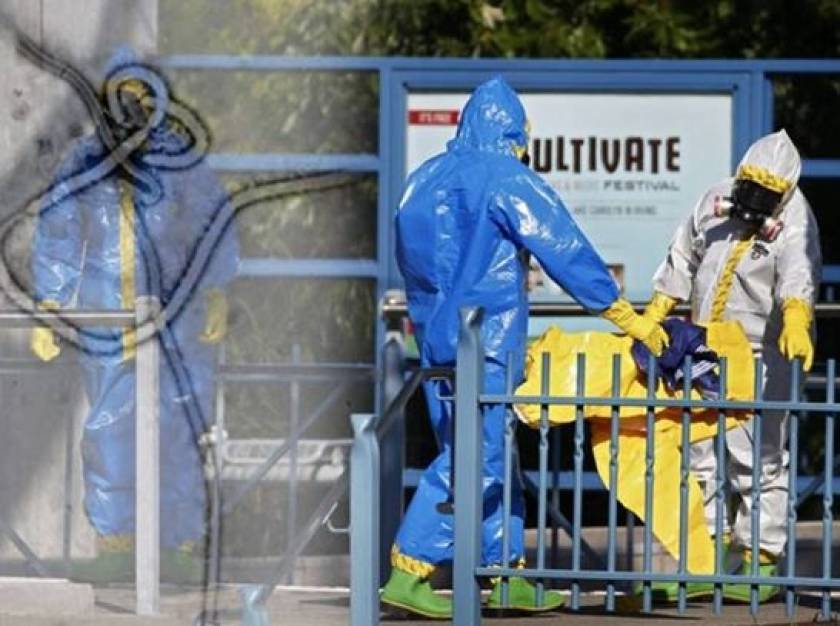Alarm for Ebola in Greece

While the West is frightened for outbreaks of Ebola, West Africa is experiencing in the worst way the deadly virus.
Based on the most recent data from the World Health Organization in the countries of West Africa, there are 9,191 cases of which 4,546 are fatal.
The most cases are in Liberia, where nearly 4,000 children orphaned and experiencing a difficult reality.
The World Health Organization warns that Ivory Coast and Mali are two countries with an increased risk of spread of Ebola.
According to epidemiologists of the World Health Organization (WHO), an epidemic of Ebola hemorrhagic fever is out of control.
The numbers and projections are bleak: the confirmed cases of Ebola virus is estimated to have exceeded 9,000 and 4,500 deaths, and according to estimates by the WHO, by mid-December, in the troubled states of the epidemic may be recorded up to 10,000 new cases of the disease on a weekly basis.
Greece is in readiness
Greece is in readiness for the Ebola virus, assured the deputy health minister, Leonidas Grigorakos on the sidelines of the conference on Health, held in Thessaloniki. "We are ready. We do what we must do. We take preventive measures. We have prepared a room in "Amalia Fleming" Hospital with two beds. What interests us is to have no incident. Beyond that, we do not wish to have this incident, but we will be ready", said Mr. Grigorakos.
"An Ebola incident in Greece is inevitable"
The president of HCDCP, Jenny Kremastinou estimates that an Ebola incident in our country will be "inevitable".
As Mrs. Kremastinou, "the importation of Ebola is almost inevitable not only in Greece, but in all countries of Europe. What we should do is once an incident occurs, to reduce the dispersion."
This is a particular concern of the authorities and it is significant that in Spain, with the confirmation of a case had to be identified - examined 150 people.
"The close supervision exhausts the system, but is the only way to reduce the phenomenon," notes Mrs. Kremastinou, stressing the need for "quick detection and rapid diagnosis."
In conclusion, she notes: "the virus has a fast spread rate. It is not an easy virus. It takes more measures locally in the countries where the epidemic is spreading."
At present, Greece has taken the measures recommended by the WHO and the European Centre for Disease Prevention and already has proceed to exercises of 'readiness' for the management of any incident in its territory.
Alarm in Patras
Meanwhile, Patras was alarmed on Friday night for a possible case of Ebola, but as it turned out there was no reason.
A citizen who had recently traveled to Nigeria came to the emergency department of the hospital "Agios Andreas", according to hospital sources.
According to the same information, just the man went to the hospital, took place immediately the necessary tests and it was found that he was suffering from a respiratory infection and the state of his health is not severe.
However, the fact that a man of African descent came to the hospital on the day of the general call, raise concern because of the climate that has been created for the Ebola virus.
BBC: The meat of wild animals behind the outbreak of the virus?
Since the deadly virus is spreading with frightening speed, scientists are trying to cope with it by seeking the causes and origins.
According to a report in the BBC, the meat of wild animals is probably hiding behind the fresh outbreak of the deadly virus, from which at least 4,500 people have died so far.
According to the British network, the family of the "patient zero", ie the first known victim of the virus, was hunting and consuming bats, which are known carriers of Ebola virus.
So can the consumption of meat from wild animals, common in Africa, is the cause of the new crisis?
The origin of the new outbreak has been detected in the village Gueckedou in Guinea, reports the BBC, while the "patient zero" is considered to be a child of two years, who died on December 6, 2013.
The BBC report says that people in these areas, hunt wild animals for food, which means that consuming meat is often dangerous, carrying diseases and viruses.
Scientists are studying this scenario and seeking solutions to combat the spread of the virus.
The report, however, states that more than 100,000 bats are been consumed each year in Ghana, for example.
Similar reports have appeared in the American media, including the Washington Post.













